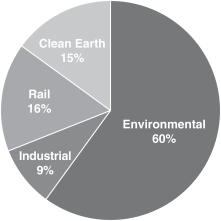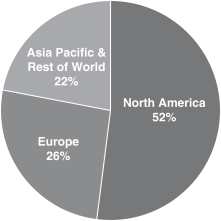assumptions as to the successful completion of the Transactions may not prove to be accurate, and other factors may adversely affect our financial condition or results of operations following the consummation of the Acquisition.
Risks Relating to Clean Earth
If Clean Earth is unable to obtain or renew its operating permits or license agreements with regulatory bodies, its business would be adversely affected.
Clean Earth’s facilities operate using permits and licenses issued by various regulatory bodies at various local, state and federal government levels. Failure to obtain permits and licenses necessary to operate Clean Earth’s facilities on a timely basis or failure to renew or maintain compliance with its permits, licenses and site lease agreements on a timely basis could prevent or restrict its ability to provide certain services, resulting in a material adverse effect on its business. There can be no assurance that Clean Earth will continue to be successful in obtaining timely permit or license applications approval, maintaining compliance with its permits, licenses and lease agreements and obtaining timely license renewals.
If Clean Earth fails to comply with applicable environmental laws and regulations, its business could be adversely affected.
The regulatory framework governing Clean Earth’s business is extensive. Clean Earth could be held liable if its operations cause contamination of air, groundwater or soil or expose its employees or the public to contamination. Clean Earth may be held liable for damage caused by conditions that existed before it acquired the assets, business or operations involved. Also, it may be liable if it generates, transports or arranges for the transportation, disposal or treatment of hazardous substances that cause environmental contamination at facilities operated by others, or if a predecessor generated, transported, or made such arrangements and Clean Earth is a successor. Liability for environmental damage could have a material adverse effect on Clean Earth’s financial condition, results of operations and cash flows. Clean Earth may also be held liable for the mishandling of waste streams resulting from the misrepresentations by a customer as to the nature of such waste streams.
Stringent regulations of federal, state, local or provincial governments have a substantial impact on Clean Earth’s contaminated soil, dredge material and solid and hazardous waste treatment, storage, disposal and beneficial use activities. Many complex laws, rules, orders and regulatory interpretations govern environmental protection, health, safety, noise, visual impact, odor, land use, zoning, transportation and related matters. Clean Earth also may be subject to laws concerning the protection of certain marine and bird species, their habitats, and wetlands. It may incur substantial costs in order to conduct its operations in compliance with these environmental laws and regulations. Changes in environmental laws or regulations or changes in the enforcement or interpretation of existing laws, regulations or permitted activities may require Clean Earth to make significant capital or other expenditures, to modify existing operating licenses or permits, or obtain additional approvals or limit operations. New environmental laws or regulations that raise compliance standards or require changes in operating practices or technology may impose significant costs and/or limit Clean Earth’s operations.
Clean Earth’s revenue is primarily generated as a result of requirements imposed on its customers under federal, state, local and provincial laws and regulations to protect public health and the environment. If requirements to comply with laws and regulations governing management of contaminated soils, dredge material, and hazardous wastes were relaxed or less vigorously enforced at the federal, state, and local levels, demand for Clean Earth’s services could materially decrease and its revenues and earnings could be reduced.
28

